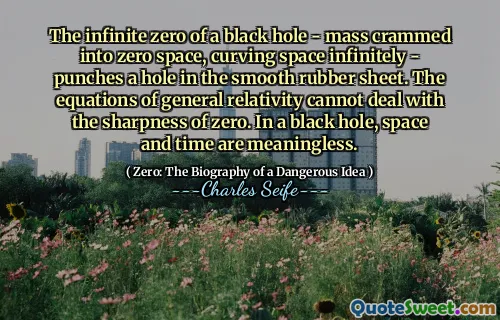"Zero: The Biography of a Dangerous Idea" explores the concept of zero, tracing its history and significance in mathematics and culture. The author delves into how zero emerged from ancient civilizations, particularly in India, where it was first recognized as a number with its own value. The narrative illustrates zero's evolution from a mere placeholder to a powerful mathematical tool that transformed number theory and computation.
The book examines the philosophical implications of zero, addressing how it challenged established norms in various cultures, particularly in the Western world. It highlights the resistance zero faced, as many regarded the concept of nothingness as paradoxical or threatening, leading to debates among mathematicians and philosophers throughout history.
Overall, the biography presents zero as more than just a number; it embodies a profound idea that has influenced science, technology, and even social thought. By integrating mathematics with history and philosophy, the book offers readers a deeper understanding of how a seemingly simple idea can hold such power and complexity within human thought.
More »
Today Birthdays
1963 -
Donna Tartt
1955 -
Carol Ann Duffy
1948 -
David Davis
1943 -
Margaret MacMillan
1902 -
Norman Maclean
1812 -
Samuel Smiles
1805 -
Joseph Smith, Jr.
1896 -
Giuseppe Tomasi di Lampedusa
1918 -
Helmut Schmidt
1947 -
Bill Rodgers
1980 -
Wael Ghonim
1967 -
Carla Bruni
1964 -
Eddie Vedder
1943 -
Harry Shearer
1984 -
Alison Sudol
1967 -
Roz Savage
1976 -
Kyle Kinane
1942 -
Quentin Bryce
1979 -
Summer Altice
1944 -
Wesley Clark
1947 -
Graham Hawkes
1938 -
Bob Kahn
1986 -
Noel Wells
1975 -
Lady Starlight
1933 -
Frank Morgan
1949 -
Adrian Belew
1975 -
Kirby Smart
1957 -
Trisha Goddard
